I’m sure many agree that Saturday mornings are a precious time of the week. Even more so in Nepal, where Saturday is the only day off in a 6-day workweek. Many no doubt looked forward to Saturday the 25th of April, just like they longed for any Saturday, unknowingly that only hours later the lives of thousands and the livelihood of millions would have been destroyed by a 7.8 magnitude earthquake. For a few seconds, Mother Nature seemed to have forgotten how powerful she is, and how fragile we all really are.
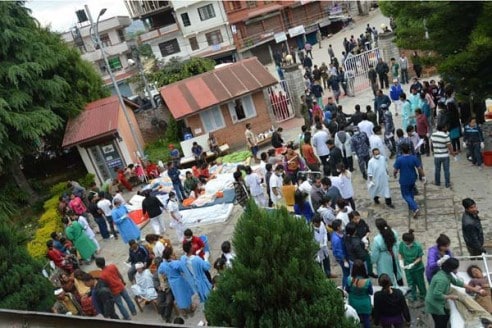
In 2012, my wife and I volunteered for a year in Dhulikhel Hospital, Kathmandu University’s main teaching hospital. We supported the (physio) staff, helped with the design of a new curriculum and delivered some lectures, but we mainly were in awe. In awe for the like-mindedness of the hospital staff. There was one goal and one goal only: to provide compassionate, quality and affordable (or free) healthcare to the underprivileged groups of Nepal. In awe for the kindness of the people who had little, but would give everything. In awe for the unique cultural heritage and unparalleled natural beauty.
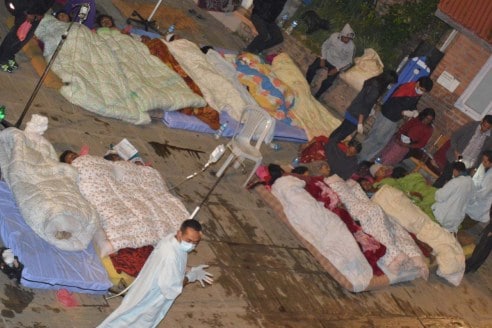
We have all seen the images of the vast destruction in Nepal, and we felt extremely relieved that all our friends and colleagues were safe. But some of their relatives are in hospital and their houses are unsafe. At least as long as the aftershocks last, they will live and sleep outside under plastic sheets. Dhulikhel Hospital escaped largely unscathed, and is operating in overdrive. Staff who have been traumatised themselves, work extra shifts. It is difficult to comprehend. The hospital has a capacity to care for 400 patients, but well over a thousand patients a day are treated. The hospital is now running low on supplies and desperately needs our help.
“It is as if we are in a war zone, but without an enemy.”
(Dr Ram Kantha Makaju Shrestha, director Dhulikhel Hospital)
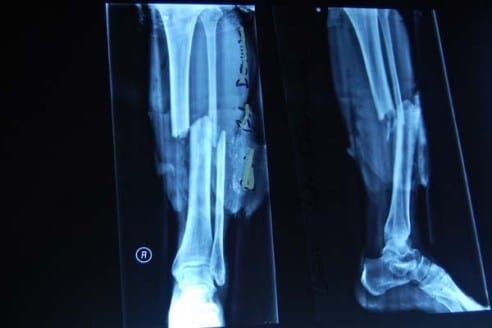
Nepal is currently still in the acute aftermath of the earthquake. The care provided by Dhulikhel Hospital extends well beyond the traditional scope of hospital care and well beyond the Kathmandu Valley. Through their 20 centres in rural and remote areas, the hospital will help rebuild peoples’ homes and rehabilitate their lives in their communities once this acute stage has passed. Besides 7365 deaths (and still counting), 15,000 people are injured (and still counting) and 1.5 million are in need of shelter and food. This will be a massive undertaking, but I am confident the Nepali people can do it if we support them. They desperately need our help.
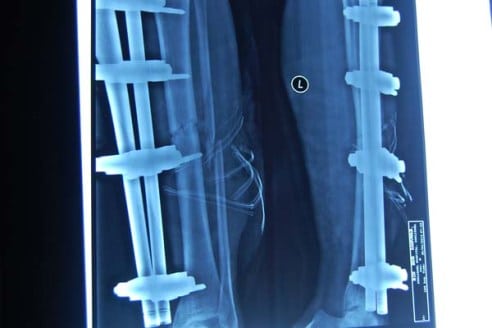
Dhulikhel Hospital* is a trustworthy organisation. Having operated for 20 years in the Kathmandu Valley and in the rural and remote areas, they know like no other organisation what to do and how to prioritise.
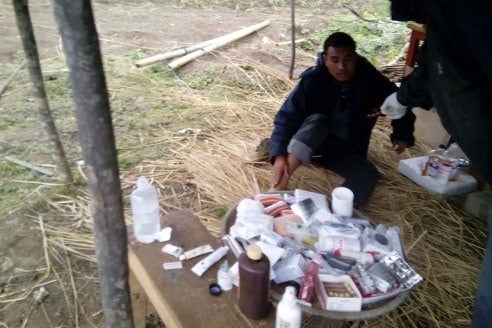
If you would like to support Dhulikhel Hospital, NOI is helping to coordinate donations and can provide details that will allow you to donate directly to Dhulikhel Hospital – contact kat@noigroup.com for details.
Thank you very much for your support. It will make a difference.
-Michel Coppieters
NOI Course Instructor
Prof Musculoskeletal Physiotherapy – VU University Amsterdam
*Dhulikhel Hospital is an independent, not for profit, non-government institution which was conceived and supported by the Dhulikhel community, as a quality health services provider. The hospital was inaugurated by the late king HM Birendra Bir Bikram Shah Dev in 1996, as a collaborative project of the Municipality of Dhulikhel, NepaliMed International and Dhulikhel Health Service Association. Besides the central tertiary level hospital, it also runs 17 community-based rural health facilities, thus ensuring that rural health care is constantly improved, innovated and made accessible.
The Hospital is guided by the principles of social equity, sustainable development and harmony with nature. Through its trained staff, it provides cost effective, compassionate and quality health care services. The hospital believes in the fact that quality health services need not always be an expensive commodity and limited only to those who are rich enough to afford. To see more images of how Dhulikhel Hospital is helping those directly affected by the earthquake, visit their flickr account.

comments